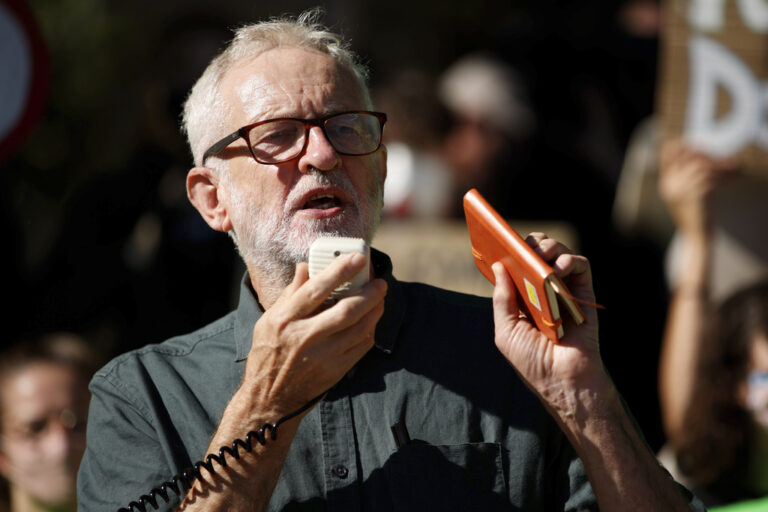V’kidashtem es sh’nas hachamishim shana u’krasem dror b’aretz l’kol yoshveha yovel hee tihyeh lachem (25:10)
Parshas Behar begins by teaching us about the mitzvah of Shemittah, which requires us to allow the ground to lay fallow every seven years. We are then introduced to the concept of Yovel, which occurs in the 50th year after every seven Shemittah cycles. In addition to allowing the earth to rest, Yovel also contains one of the most famous requirements in the Torah.
In the Yovel year we are also required to free all Jewish slaves. The verse in the Torah requiring us to “proclaim liberty throughout all the land for unto all of its inhabitants” was immortalized on the Liberty Bell in Philadelphia, which was rung in 1774 to announce the opening of the first Continental Congress, and according to legend, on July 8, 1776, to summon citizens to hear the reading of the Declaration of Independence.
Its historical significance notwithstanding, there seems to be one glaring error in this verse. Although it was indeed appropriate for our nation’s Founding Fathers to declare freedom for “all” of America’s inhabitants, why does the Torah tell us to do so? Since the Yovel year represents independence only for the slaves that would be freed, in what way is it considered liberating for “all” of the people?
The following story will help us answer these questions. Rav Isser Zalman Meltzer was once walking home with his nephew on a cold winter day. As he reached his home and started to ascend the steps, he suddenly turned around. Rav Isser Zalman began pacing on the sidewalk, apparently deep in thought. His nephew pressed him for an explanation for his bizarre behavior, but he shrugged him off.
After ten minutes, Rav Isser Zalman again approached the house, but again did an about-face and resumed pacing. As it was growing bitterly cold, his perplexed nephew begged for mercy or at least an explanation. Rav Isser Zalman relented and explained. “As I walked up the steps, I heard the young woman who comes every week to help out in the kitchen singing to herself while mopping the floor. I realized that if I barged in right in the middle, she would be embarrassed and stop singing. I don’t have the right to deny her the pleasure she has of singing while she works, so I decided to wait outside until she finishes.”
In light of this story about Rav Isser Zalman’s sensitivity to his cleaning lady, we can appreciate the answer to our question given by Rav Zalman Sorotzkin. The Gemora teaches (Kiddushin 20a) that whoever purchases a Jewish slave in effect acquires a master for himself. The Torah demands that an employer be responsible for the well-being of his employees.
As Rav Isser Zalman teaches us, he is obligated not just to provide them with a paycheck, but also with a warm and supportive work environment which takes their feelings and welfare into account. By ordering the slaves to go free in the Yovel year, the Torah is in effect lifting a major burden off of their current owners, in essence creating a newfound freedom and liberty not just for the freed slaves but also for their masters.
V’chay achicha imach (25:36)
In the spring of 1943 Rav Yosef Shlomo Kahaneman, known as the Ponovezher Rav, established an orphanage in B’nei B’rak to absorb and care for the many orphaned children who had been rescued from the Holocaust and were sent to Eretz Yisroel. Unfortunately, with the first group of children scheduled to arrive on a Sunday, the Ponovezher Rav found himself without any linens or pillows for the children to sleep on due to the dire situation in Eretz Yisroel at that time. On Friday, with two days remaining until their arrival, Rav Kahaneman announced that he would be speaking on Shabbos afternoon in the largest synagogue in town.
He began his speech by citing the Gemora in Bava Metzia (62a), which discusses a case in which two people are lost in the desert with only one flask of water. If they split the water between them, both will die before they are able to reach the nearest settlement, but if one of them drinks it, he will be able to survive. Rebbi Akiva derives from our verse that “chayecha kodmin” – your life takes precedence over that of your friend, and therefore the one with the water should drink it all.
On the other hand, the Gemora in Kiddushin (20a) teaches that a person who purchases a Jewish slave in a sense acquires a master for himself due to the Torah’s requirement to equate the slave’s standard of living to his owner’s level of comfort. Tosefos adds that sometimes even this is not sufficient, such as in a case when the owner possesses only one pillow. If he takes it for himself, he violates the Torah’s requirement to give his slave equal treatment, and he therefore has no choice but to give his only pillow to his slave, leaving himself with nothing on which to sleep.
Rav Kahaneman noted that this ruling of Tosefos seems to contradict the teaching of Rebbi Akiva. Just as the person who is lost in the desert is permitted to drink all of the water due to the principle of “chayecha kodmin,” shouldn’t this same reasoning allow the master to keep his sole pillow for himself?
The Ponovezher Rav explained that the two rulings are in fact compatible, as the requirement to give the pillow to the slave actually emanates from the Torah’s concern for the primacy of the owner’s well-being. If the master were to keep the pillow and lay down in comfort while observing his slave tossing and turning, his conscience would bother him so much that he wouldn’t be able to enjoy the pillow and a good night’s rest. Therefore, precisely in order to allow the master to be at peace with the arrangement, the Torah requires him to give the pillow to his slave for his own well-being so that he can sleep soundly through the night.
Similarly, the Ponovezher Rav continued, in only one day a large group of Jewish children would be arriving at the new orphanage in B’nei B’rak, which was completely lacking pillows and sheets on which they could sleep. Questioning how any of those present could go home and enjoy a comfortable night’s sleep now that they were aware of this situation, he advised them that for their own well-being, they should immediately donate the only pillows and linens in their possessions, a suggestion which was fulfilled by the inspired and touched listeners as soon as Shabbos was finished.
Es kasp’cha lo sitein lo b’neshech uv’marbis lo sitein achlecha (25:37)
There was once a wealthy Jew in Posen who stingily refused to give any charity and would only extend loans to Jews in need if they agreed to pay him back with interest, despite the Torah’s explicit prohibition against doing so. When the man died, the local burial society decided to demand an exorbitant amount of money from his family as payment for a burial plot in the local cemetery, but before doing so, they first consulted the town Rav, Rav Akiva Eiger, who consented to their plan.
When the man’s family heard about this unprecedented condition, they went to the authorities to complain. Since their grievance seemed legitimate, the local government official summoned Rav Akiva Eiger to defend this seemingly discriminatory policy. Why was the burial society accustomed to charging a relatively small amount for a burial plot for all other dead Jews, and were even willing to forego payment when an indigent community member passed away, yet the Rav had permitted them to demand a massive sum in order to bury the deceased miser?
Rav Akiva Eiger responded by explaining that one of the fundamental tenets of Judaism is a belief in the resurrection of the dead, which we pray for daily and hope will occur imminently. As such, when a Jew is buried, he is only “renting” the burial plot for a short while until Moshiach arrives and brings the dead back to life, and it is appropriate to charge him a token sum for what we hope will be the use of the ground for only a short period of time.
However, our Sages teach (Yalkut Shimoni Yechezkel 375) that somebody who lends money with interest will not merit rising for the resurrection of the dead. Because the dead man in question had consistently lent out his money with interest, his use of the burial plot was not a temporary rental but a long-term purchase, and as such, it was only appropriate for him to pay substantially more than the price charged to other Jews for a burial plot. The official accepted the logic of this explanation and ruled that the man’s family must pay the price requested by the burial society in order to receive his eternal resting place.
Answers to the weekly Points to Ponder are now available!
To receive the full version with answers email the author at [email protected].
Parsha Points to Ponder (and sources which discuss them):
1) The Torah stresses the importance (25:23-34) of redeeming ancestral land and returning it to its rightful owner. In the Messianic era, will all land be returned to its original owners, or will there be a new division? (Chazon Ish Shevi’is 21:2, Ayeles HaShachar)
2) The Gemora in Bava Metzia (62a) discusses a case in which two people are lost in the desert with only one flask of water. If they split the water, both will die before they are able to reach the nearest settlement, but if one of them drinks it, he will be able to survive. Rebbi Akiva derives from a verse in our parsha (25:36) that “chayecha kodmin” – the one with the water should drink it all, as his life takes precedence over that of his friend. If three people are lost in the desert and one of them has sufficient water for himself and one other person, it is clear that he should drink one supply of water, but what should he do with the second? (Chiddushei HaRim)
3) Rashi quotes (26:1) the Gemora in Kiddushin (20a) which explains the order of passages in the parsha as reflecting the increasingly severe punishments meted out to one who works the land in the Shemittah year, one of which is that he will be forced to borrow money and pay it back with interest. How will this punishment ever come to fruition, as it is prohibited for other Jews to lend him money and demand interest even if he has behaved incorrectly? (Darash Moshe)
© 2011 by Oizer Alport.










